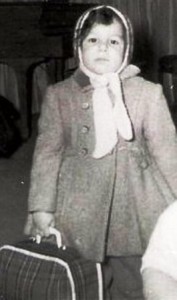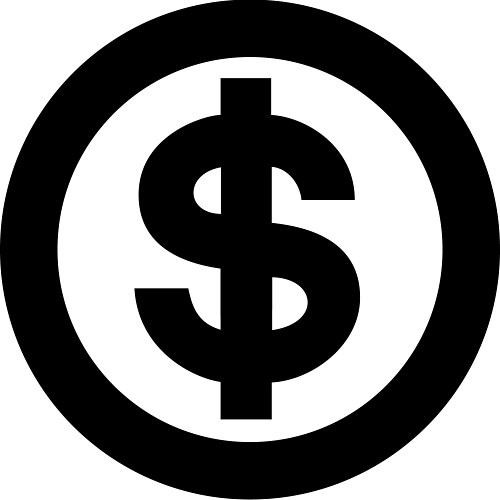My Well-Mannered Traveler column on msnbc.com this week –Are airlines cashing in on your kids? -addresses some of the new fee airlines will charge you to put your kid on a plane as an unaccompanied minor.

Southwest Airlines gets kudos for not charging customers a fee to take along two checked bags. But the “Bags Fly Free” airline has a different attitude about kids: starting Friday, April 23, 2010 Southwest Airlines is doubling the fee it charges to transport children age 5 to 11 as unaccompanied minors. The new UM fees — $50 each way, up from $25 each way — are still on the low end of a fee scale that can top $300 per round-trip. But as we learned last June when one airline “misplaced” very young travelers on two much-publicized occasions, parents don’t always get what they think they’re paying for when they fork over these fees.
So as summer travel planning gets underway and kids start looking forward to camp or a visit to a friend or relative in another city, it’s a good time to review airlines fees for unaccompanied minors and the tips for making sure your little solo traveler flies safely.
Bags may be free; your kids aren’t
The news isn’t all bad: Alaska Airlines and Horizon Air are actually lowering the fees they charge for accommodating unaccompanied minors. Starting with tickets purchased May 1, 2010 for travel after June 16th, customers will pay a $25 fee per child for direct flights and $50 per child for connecting flights. This is a reduction from the current $75 fee.
What about other airlines? Prices and rules are always subject to change, but here are the current charges for unaccompanied minors on most domestic airlines. Fees listed below are one-way.
Airtran Airways: $39 for non-stop/direct flights; $59 for itineraries with connections. If two or more children travel together, only one fee is charged.
Alaska/Horizon Airlines $75 each way for children ages 5-12. This fee is for up to three children. Effective May 1 for travel after June 16: $25 fee per child for direct flights; $50 per child for connecting flights within the Alaska/Horizon network.
American Airlines: $100 each way. Covers two or more children from the same family.
Continental Airlines: $100 each way. Covers children traveling together.
Delta Airlines: $100 each way, per child.
Frontier Airlines: $50 for direct and non-stop flights; $100 for connecting flights. One fee per family.
JetBlue Airways: $75 per child.
Spirit Airlines: $100 each way, per child.
Southwest Airlines: $50 each way, each child.
United Airlines: $99 each way; covers 2 or more children traveling together.
US Airways: $100 each way; non-stop only. Covers two or more children.
Virgin America: $40 one way; non-stop only.
Some details to keep in mind:
Be sure to check for updates, rules and additional fees, which can vary widely and often change on short notice.
For example, some airlines waive the UM fee for children who have achieved frequent flier status. Some airlines do not allow unaccompanied minors to fly after 9 p.m., on the last flight of the day or if bad weather or some other condition (i.e. impending strike or volcano eruption) might cause delays.
Several airlines promise to give your child a snack; others will waive the checked bags fees; and a few charge just a single fee for two or more children traveling together, which can offer significant cost-savings.
And be sure to check those age restrictions: some airlines charge unaccompanied minor fees only for children aged 5-11. Others might insist on collecting an unaccompanied minor fee for teens 14 or even 15 years-old.
Airlines take the fee; you keep the responsibilities
There’s that old saying, “You get what you pay for.” That rule doesn’t necessarily apply when it comes to picking an airline to transport your young solo flier. Remember those ‘mis-delivered’ kids? They were flying on Continental Airlines/Continental Express, which levies a $100 UM fee. Last June, the airline sent a 10-year-old girl to Newark, N.J. instead of Cleveland and flew an 8-year-old girl to Arkansas instead of Charlotte, N.C.
Mistakes happen, of course, and millions of kids fly alone each year with no problems. But there’s plenty you can do to tip the scales in favor of your little unaccompanied minor having a smooth flight.
Make sure you’re prepared:
Nancy Schretter of the Family Travel Network urges parents to do their homework. “Avoid airlines that have had problems [caring for unaccompanied minors] in the past. … Choose larger aircraft and, if possible, stay away from small regional jets. … And think about everything that could happen and be ready to deal with problems.”
Some of those problems could crop up with the all the paperwork associated with sending a child as an unaccompanied minor. Study the rules, have the required phone numbers and identification information ready when you go to the airport and make paper copies of everything, including the airline’s posted unaccompanied minor policy. In researching current fees and rules, I discovered that the advice of reservation agents can conflict with an airline’s posted rules.
Make sure your child is prepared
Arm your child with snacks, some cash, a charged cell phone, emergency phone numbers and books, games and other activities to keep them entertained. And make sure your child knows what to do if things go wrong.


